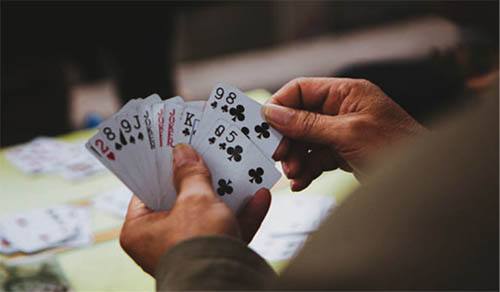
|
| « Articles | History of Playing Cards | Gallery of Playing Cards | Card Games Rules | CONTACT |
Why Don't Casinos Offer Bridge

For many, Contract Bridge, or commonly called Bridge, is a game that your granddad might have met his friends to play down the pub on a Tuesday night, but bridge is actually a hugely popular game played by millions across the world every day.
A popular card game like this you might expect to be in casinos somewhere, but unfortunately that is not the case for Bridge, you might see some sort of promotional version of the game in some venues, but the game itself has never found its place within casinos regularly.
So why does such a popular card game not have a place within casinos?
Bridge Basics
There are many different forms of Bridge but the most popular two versions are Rubber and Duplicate. Rubber Bridge is mostly played at home and sometimes can be available in tournaments and card clubs. Duplicate Bridge is normally the version you would play in tournaments and clubs.
In Duplicate Bridge the random luck side of the game is removed by a ruling being made on who plays identical hands the best. We will focus on Rubber Bridge here as many players prefer the draw's randomness.
So to begin with you need four players, divided into a pair of teams of two players each. Teammates sit opposite each other and take it in turns to deal a standard 52 card deck clockwise. Each player should Possess 13 cards at the end of each deal.
With bidding starting at 6 hands or tricks, players take it in turns to make a bid on how many hands or tricks they will win, with a maximum bid of 7 available due to the amount of cards and tricks available in a game. A bid of two basically means a team must win 8 hands and the maximum of 7 means the team must win 13 tricks, 52÷4=13.
Each team can also choose their trump suit, so if a player declares three diamonds, they are simply stating that they can win 9 hands and diamonds is their trump suit. The suits will determine a winning bid when two bids are tied.
To be successful in your bid you must win at least the amount of hands or tricks as declared, while the opposing team attempts to stop this. Players can pass when it is their turn, but three passes consecutively determine the winning bidder. To find out in more detail about how to play the game, then learn more here.
So Why Doesn't Bridge Fit at Casinos?
When it comes to picking Bridge for a casino, the operators are basically looking at three main things that might be a downside to Bridge; does it provide enough of a house advantage whilst also being attractive and fair to players? Is the play rate quick enough? Would we have to charge a considerable 'rake' to make Bridge worth our while?
Bridge is a player vs player type game, much like poker in this aspect, so when playing amongst your friends or as part of a tournament, the players take all the winnings. Of course we do see poker in casinos and that is because venues will take a rake like taking 5% from each pot during a cash game or taking 10% of a buy in from entry fees into a tournament.
Unfortunately for Bridge, as it has such a slow rate of play, a 'rake' would not be enough for a casino. Unless they charge a very high 'rake' but this wouldn't be attractive to players. Pushing players to play higher stakes might be another way of making it suitable to a casino, but again this would eventually end up putting players off.
In Conclusion
So sadly for now it doesn't seem that casinos will be rushing to create any private Bridge rooms or tournaments for the game but some venues will have special promotional games of bridge, this is mostly just to attract new players through their doors and will eventually hope you filter to their more established games.
Bridge unfortunately will never be profitable to have in a casino on a regular basis, so if you are a fan of bridge, its best to find a local club or even teach your friends to play. If you still don't believe me how popular around the world the game of Bridge is then check out this news article.
|
|
|
|